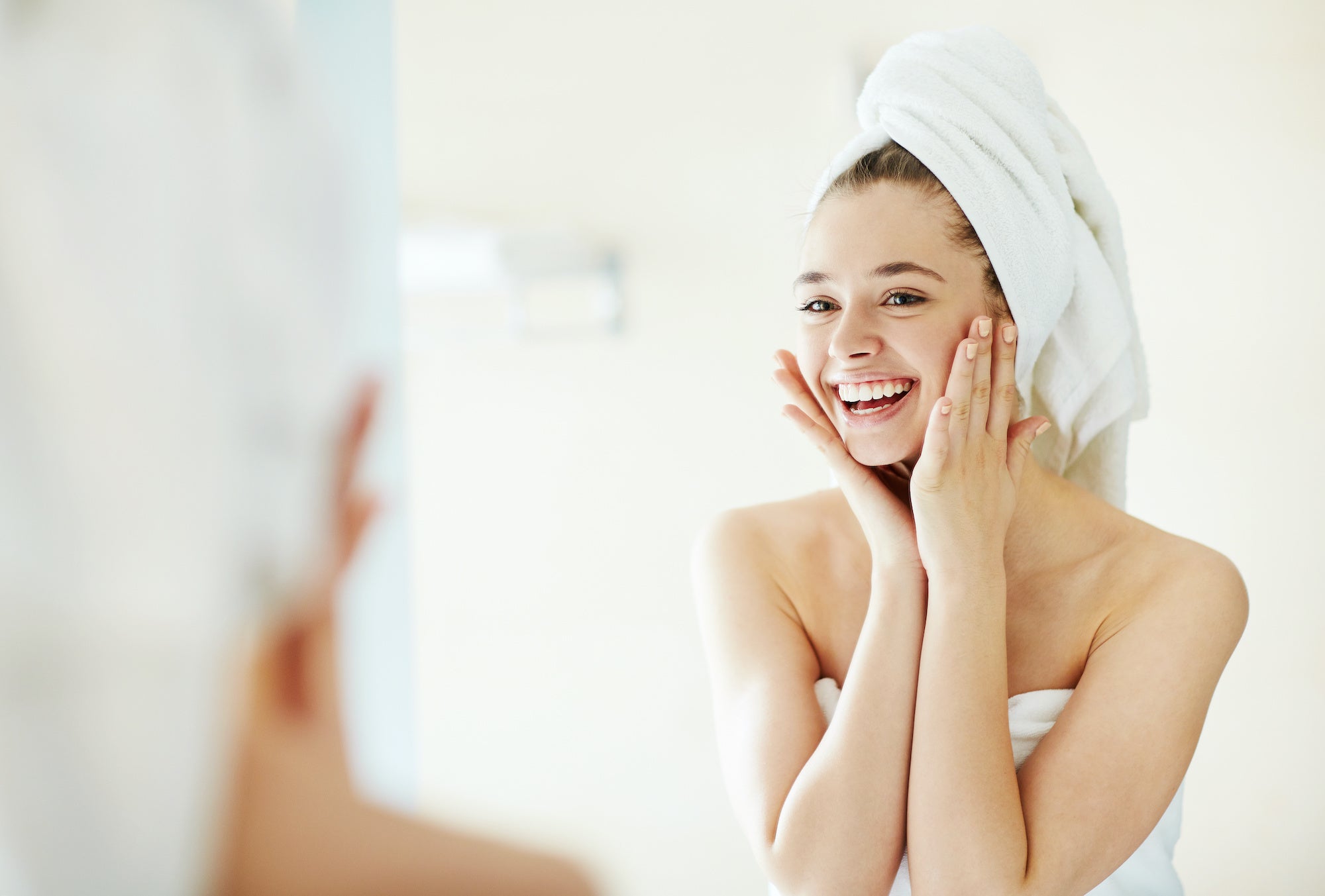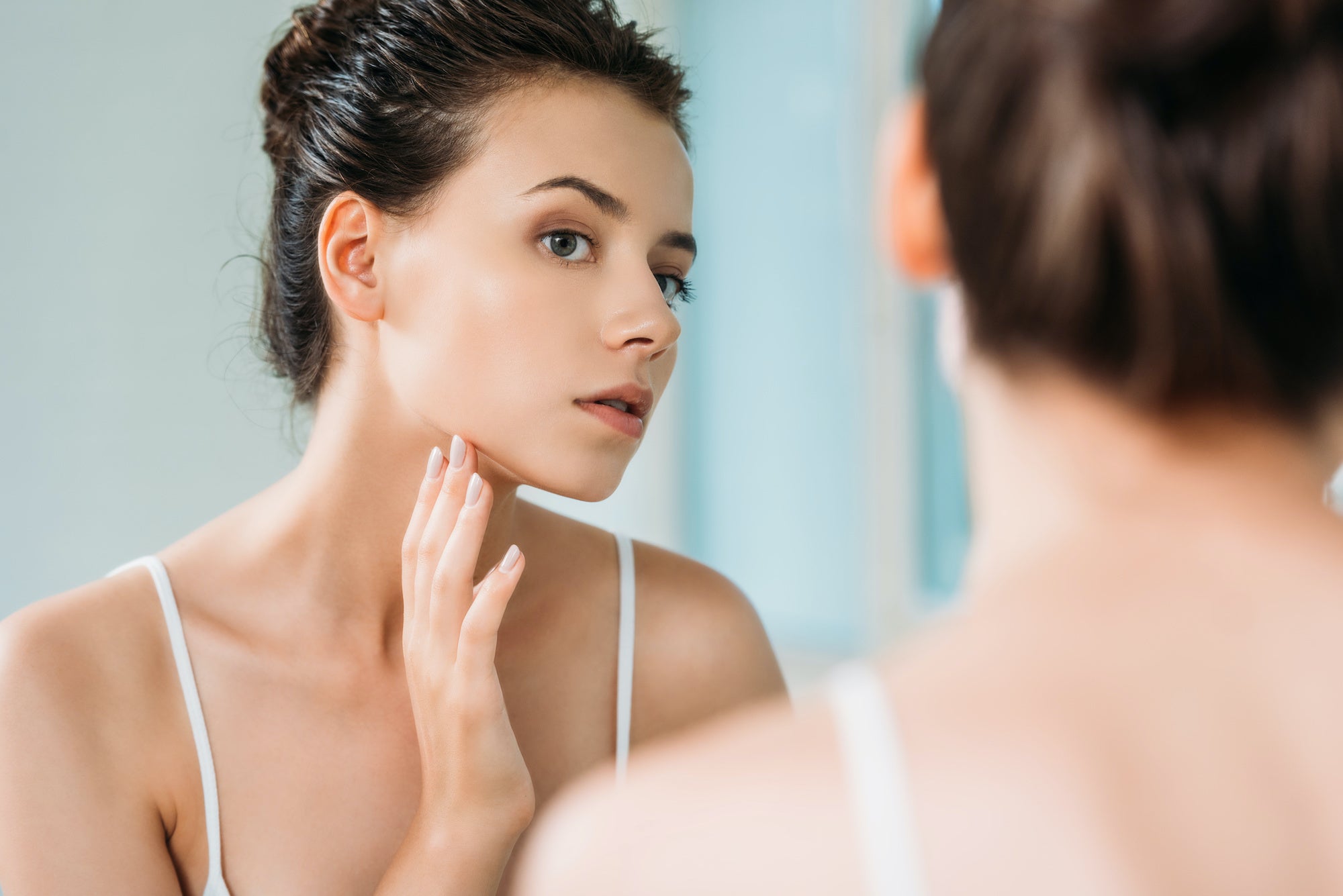
Your Skin Type and Why it Matters
The day has come! You decide that it is time to do more for your skin. Hopeful and excited, you walk down the skincare aisle, and your eyes grow wide at the sight of a million different products in front of you. Picking one up, you examine it to see if this will be the miracle product for your skin. Instantly you see “For Dry Skin.” You pause and wonder what that means. You pick up the next product, and it reads “For Oily to Combination Skin.” My friend, you have found yourself in the skin type web!

We know that trying to figure out your skin type is frustrating, but have no fear, Averr Aglow has you covered!
It’s hard to be lost in the confusion of not knowing what products will work for you. While learning your skin type can create quite a headache, many skincare and beauty companies use these categories as a convenient way to understand your skin. The chance that you will find yourself perusing the shelves again and seeing these labels is pretty high. No doubt, you will reminisce about your experience as well. But the difference? This time you will be ready!
1. Normal Skin
First and foremost on the skin type list is normal skin.

Normal skin is the most coveted type of them all, but that doesn’t mean it’s perfect. More balanced than the rest, normal skin is less inclined to break out. This is mostly because people with this skin type find themselves somewhere in between dry and oily. Normal skin will also have minimal issues with dryness, wrinkles, and fine lines.
Don’t get me wrong, normal skin can have its share of bad days. But, if you fit here, you kind of hit the genetic lottery! However, there is a catch: you must maintain a healthy skincare routine. Include products that don’t over-moisturize your face or dry it out. For this, we recommend an excellent daily skincare system that will keep you right on target. Our Luminous Clear Skin Kit will help preserve the health of your skin but also provide a stunning healthy glow. Cheers to that!
2. Dry Skin
Often when we hear the term “dry,” many of us imagine the same picture.

The good news is this picture is not your skin!
All jokes aside, dry skin can be frustrating. While you might feel like it is something that you are doing wrong, your dry skin is probably not the result of your neglect.
Many people who fall within this skin type have an underproduction of sebum, which directly affects how baby-soft your skin will be. Sebum also holds the key to the natural moisture of our skin.
Those with dry skin may experience flaky patches and dryness to the point of discomfort. Although this may seem like a bleak picture, there is hope!
The benefits of a great, natural-based moisturizer can work wonders on dry skin! In particular, a non-oil-based moisturizer will produce lasting hydration by not clogging pores.
Our suggestion is to use our Flawless Nourishment Cream. This waterless moisturizer is lightweight and will help to rejuvenate and replenish much-needed nutrients within the skin. Rich in essential vitamins, this will be a game-changer for your skincare routine.
3. Oily Skin
Heads up oily skin friends, this one’s for you!
If you fit within this category, you probably have an overproduction of sebum; the exact opposite of dry skin. Throughout the day, you might find yourself having to repeatedly blot your face because of excess shine. Your pores may also seem larger, and acne breakouts can be more frequent.

You can tackle this skin type with a few simple changes. We recommend incorporating jojoba oil to help balance the production of oil and help with acne.
Also, some diet changes wouldn’t hurt, as both acne and overproduction of sebum have been linked to what you eat. Now, there’s some food for thought.
While jojoba oil is great for many reasons, other products that promote oil control do not. Many will dry your face out and create further imbalance. Stick with natural solutions for your skincare needs.
4. Combination Skin
Last, but certainly not least, is combination skin. The most common out of the skin types, it is exactly as it sounds. With some areas of the face being oily and other areas dry, combination skin needs a little bit of everything.
If this is you, the important thing to remember is that the oiliest places on your face will be the T-zone. What this means is that the forehead and nose will be super shiny pretty much all of the time because of pore concentration. While the other places on the skin will experience some dryness and possible flakiness.

Luckily, this is not where the story has to end. There are solutions to this dilemma. Just like with oily skin, jojoba oil works at not only controlling oil production but also hydrating areas that need it most.
One of the key features of this product is the humectant ingredient which provides a protective layer for the skin to heal and not produce more breakouts. This product is honestly a must-have! As we’ve said before, sticking with natural solutions is the way to go!
Changes Make All of the Difference
With a few changes to your skincare routine, you can achieve healthy skin no matter the type. The first step is understanding the baseline for how your skin works and the next is doing something about it.
At Averr Aglow, we want you to feel confident with your skincare journey. That’s why we work so hard to provide accurate information on skincare and create products that work. Our pride is rooted in having a formula that can work for you. This is why all of our products can be used regardless of skin type. Now isn’t that a breath of fresh air?




